Stopping Cholera in Its Tracks
.webp)
In the heart of South Sudan, a silent killer spreads through contaminated water and overcrowded shelters. Cholera, a deadly bacterial infection, thrives in crisis. But with support from the European Union and UK Aid, Medair’s Emergency Response Team (ERT), a member of the ERRM Consortium, is on the ground and fighting to save lives, restore dignity, and deliver new hope.
Cholera: A Threat Fuelled by Crisis
In South Sudan, years of conflict and flooding have devastated basic infrastructure. Latrines are destroyed. Boreholes are broken, submerged and contaminated. In overcrowded shelters and remote villages alike, clean water is a luxury, and cholera thrives in its absence. This deadly disease, which causes severe diarrhoea and dehydration, can kill within hours if left untreated. The United Nations say the current cholera outbreak is the worst and longest South Sudan has ever seen. Since the cholera outbreak was officially declared in October 2024, UN agencies and partners have documented over 80,000 cholera cases and 1,400 deaths. When the outbreak hit Leer County, one of the most densely populated counties in South Sudan, time was critical to prevent the outbreak from spreading further.
A Mother's Relief
At a Medair-supported cholera treatment site in Leer, Nyawech, a mother of five, brought her sick son, Gatwech.
.webp)
"My son has vomiting and diarrhoea. I heard there is an outbreak and that I can come here for treatment. The child is now feeling better and is stable thanks to the treatment. Now I am relieved. The nurses and staff were there to welcome us. We were given rehydration salts and fluids and medicines. Here, people do not know how to protect themselves against this disease. That is why it is good that your hygiene promoters have started to share messages. It has a positive impact."
Her story reflects the life-threatening danger of cholera and the critical role of quick access to care and information.
.webp)
Medair's Emergency Response: Fast, Flexible, and Lifesaving
Medair’s Emergency Response Team, in close coordination with the ERRM Consortium partners, was quickly deployed to Leer County. Their mission: to stop the cholera outbreak before it could spread further. The response included several coordinated lifesaving actions:
1. Cholera Treatment
Medair established and operated a Cholera Treatment Unit (CTU) at a key location in Leer County. Patients suffering from symptoms received immediate care, including oral rehydration solution (ORS), intravenous fluids, antibiotics, and close medical monitoring. The units were equipped to isolate and manage cases safely to prevent further spread within families and communities.

The presence of this treatment unit meant that people like Nyawech and her sick son did not have to walk for hours to reach a hospital. Or worse, stay home and risk losing a loved one. In cholera outbreaks, early treatment is the difference between life and death.
2. Oral Cholera Vaccination Campaign
Led by Medair’s trained health professionals, the community formed teams and carried out a large-scale oral cholera vaccination (OCV) campaign. Supervisors and vaccinators were trained and dispatched to reach even the most isolated communities. Some roads were impassable, and villages were surrounded by floodwaters, but the teams persevered.
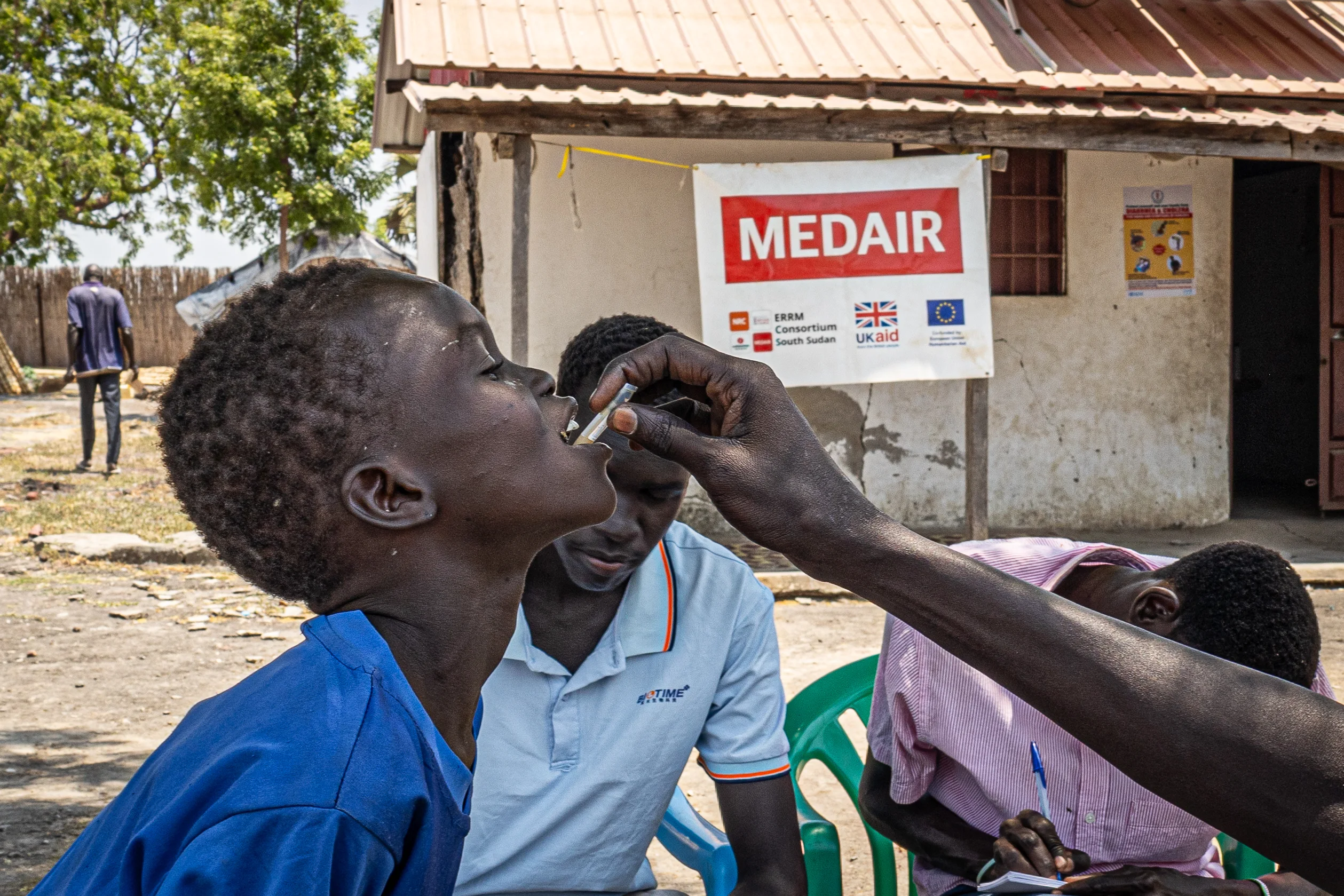
"Cholera is a deadly bacterial infection. Vaccination is the most effective way to prevent an outbreak," says Victor, a Medair Health and Nutrition Officer. "In Leer, poor infrastructure and split communities made logistics difficult. But we mobilised, built trust, and reached the people. I’m proud of what we are doing here."
Without vaccination, the outbreak would have likely spread rapidly. In places where medical care is limited or hours away, prevention is critical.
3. Hygiene Promotion and Community Awareness
Medair trained hygiene promoters from within the affected communities. These volunteers went door-to-door, sharing information on how cholera spreads and what households can do to protect themselves; simple steps like handwashing, safe water storage, and recognising early symptoms.
.webp)
Education is key: in many remote areas, families are not aware of how cholera is transmitted. Hygiene promoters are now a trusted source of prevention messages, vital in stopping the disease from spreading.
4. Distribution of cholera kits
To help families protect themselves, Medair distributed hundreds of cholera kits. These included buckets with lids, soap, and water treatment tablets.
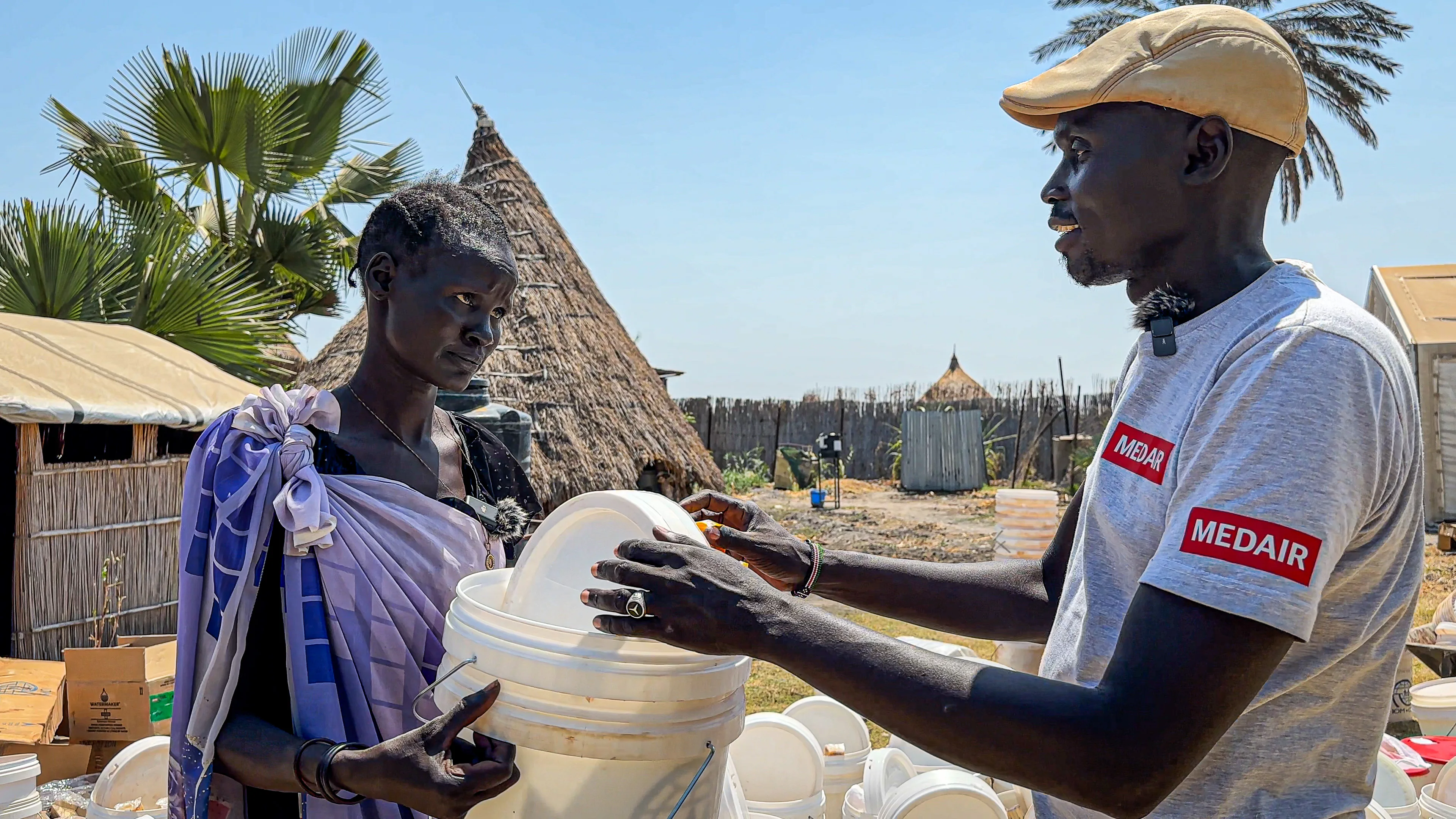
Nyakoang, a mother who received a cholera kit for her family, shared after the distribution:
"I am happy to collect the cholera kit because they will help a lot. Since the outbreak, we have been afraid of cholera. With the bucket, the water we fetch will be protected from contamination and stay clean. We also now have soap to wash our hands, and can improve our household hygiene. We are thankful for the support."
Without access to soap, water treatment tablets and clean containers, families have no way to stop contamination. The kits are simple but powerful tools against infection.

© Medair/Stefan Kewitz
5. Borehole Rehabilitation
In addition to family-level support, Medair also rehabilitated community boreholes in Leer County. Before the intervention, students at a primary school in Leer were drinking untreated water from the Nile River, close to a riverbank where people without access to proper sanitation facilities used to defecate, putting them at high risk of infection.

The repaired water point next to the school now provides clean, safe water to hundreds of children daily. This not only improves health but keeps children in school, especially girls, who are often tasked with collecting water. With clean water available on site, their risk of illness has decreased dramatically.
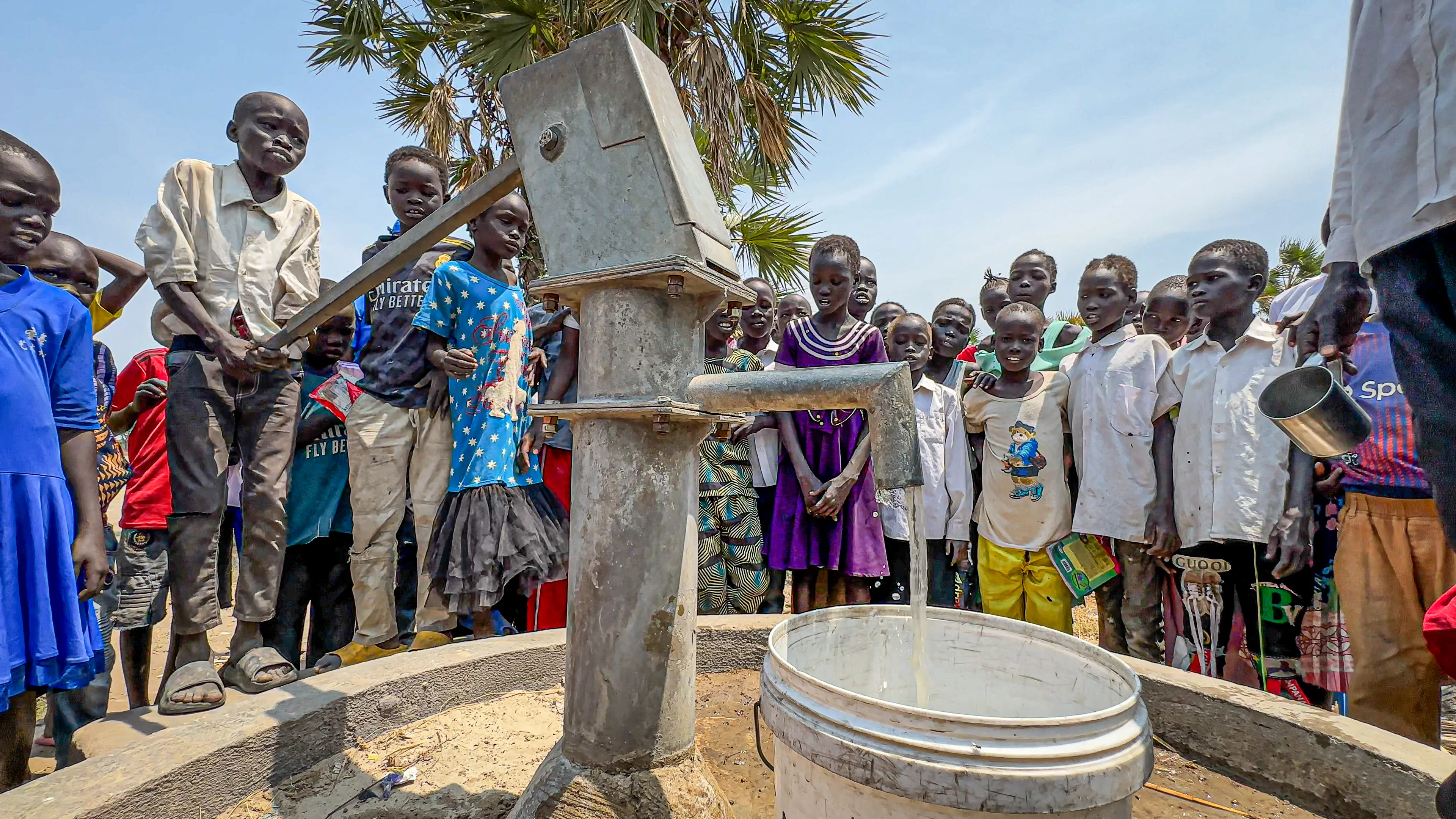
Gatluak, a teacher at the primary school, shared: “Recently, five children from the school fell ill after drinking river water. Now that this borehole has been repaired, people can access clean water near the school. This borehole is very important. The water is clean and safe for the children at the school. I am really happy about this. The children are even happier because they now have access to clean water close to the school again.”
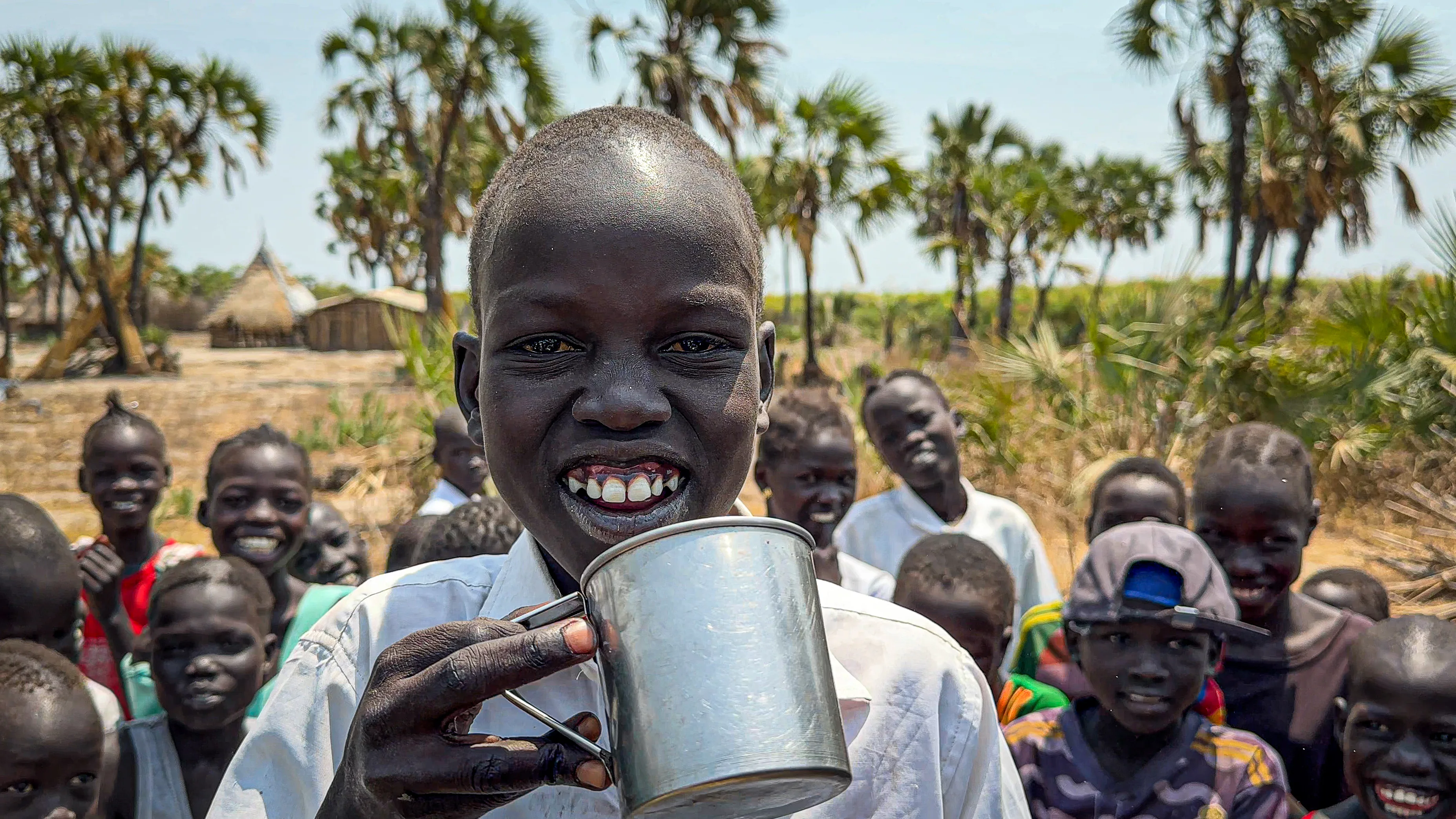
© Medair/Stefan Kewitz
What If Help Had Not Come?
Without this integrated response—treatment, vaccination, cholera kits, education, and clean water—the outbreak could have devastated entire communities. Cholera does not wait. It spreads fast, especially in places with poor infrastructure and limited healthcare.
Thanks to the ERRM Consortium intervention and the support of the EU and UK Aid, thousands of people were protected from the worst. Treatment centres saved lives. Community education changed behaviours. Clean water restored dignity and hope.
Why Your Support Matters
What happened in Leer is just one example. Since the declaration of the cholera outbreak, Medair’s Emergency Response Team has carried out nine different cholera interventions across South Sudan, reaching hundreds of thousands of people with essential health and WASH services.
In 2025, our teams have vaccinated more than 240,000 people against cholera and treated over 2,000 patients with the disease in our treatment units.
But the crisis is far from over. South Sudan continues to face cholera outbreaks and other immense humanitarian challenges. Your ongoing support helps Medair stay ready, so that when the next outbreak happens, we are already on the way.
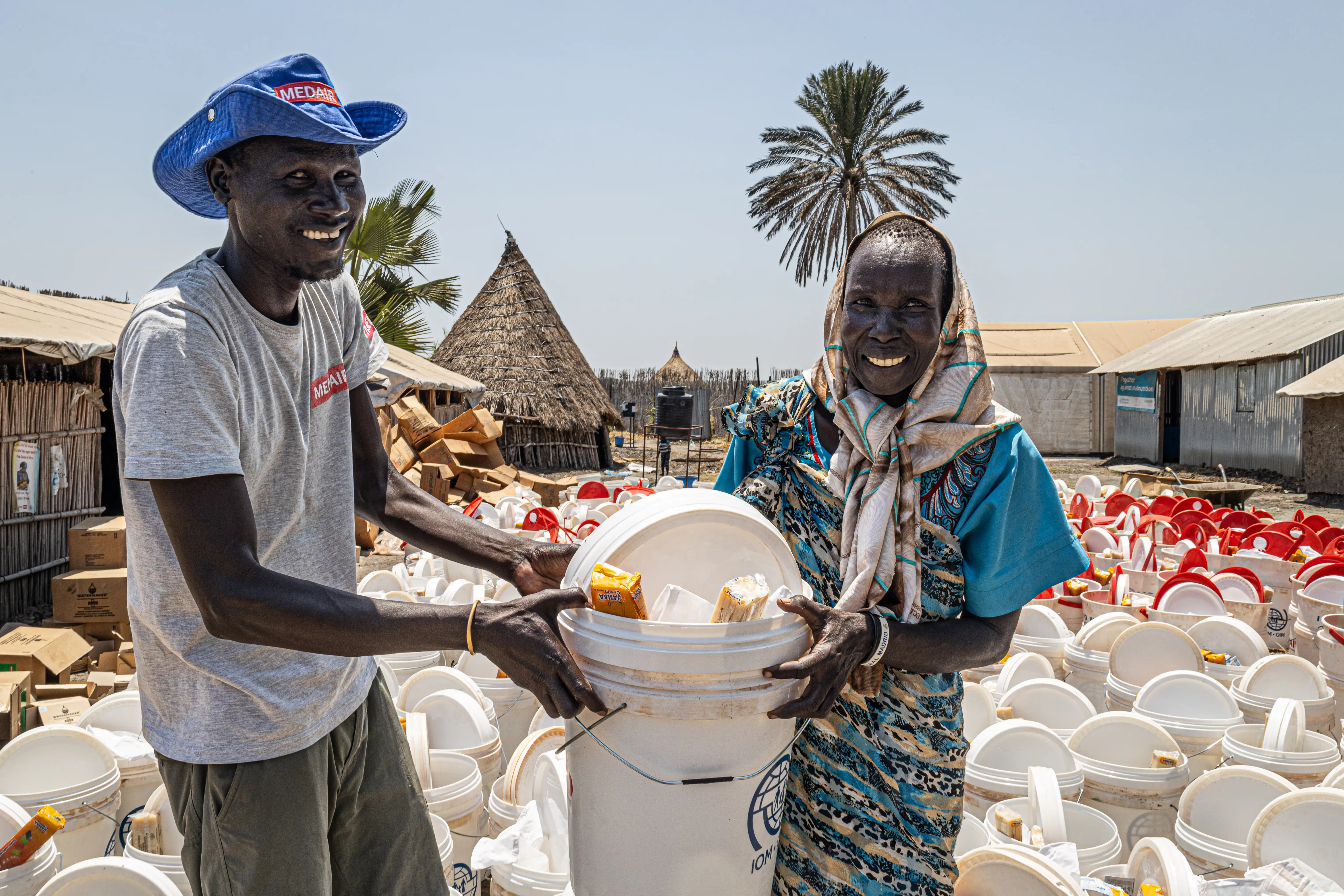
Join the Response
With continued funding from EU Humanitarian Aid, UK Aid, and individual donors like you, Medair can expand its reach even further.
Your support saves lives. Your gift brings hope.
Help stop the next outbreak – [Donate now]

Medair conducted this intervention as a member of the Emergency Rapid Response Mechanism (ERRM) Consortium in South Sudan.
About the ERRM Consortium:
Co-funded by the European Union and UK Aid, the Emergency Rapid Response Mechanism (ERRM) Consortium is a collaborative effort between the Norwegian Refugee Council, Danish Refugee Council, Medair, and Solidarités International, along with national implementing partners. The ERRM provides coordinated and rapid lifesaving aid to crisis-affected communities in South Sudan, especially in hard-to-reach areas or areas with a low presence of humanitarian actors. Responses prioritise critical needs in health, nutrition, protection, shelter, water and sanitation, and education in emergencies.
This content was produced with resources gathered by Medair field and headquarters staff. The views expressed herein are those solely of Medair and should not be taken, in any way, to reflect the official opinion of any other organisation.
.webp)
.webp)
.webp)